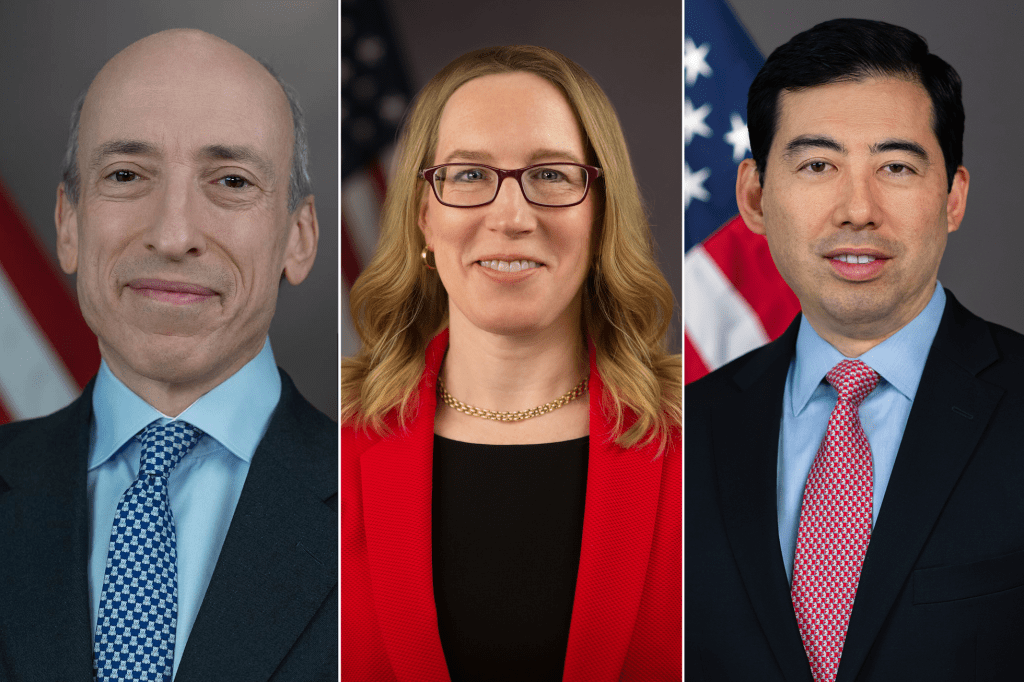In a Kentucky district court last week, 18 Republican state attorneys general sued the SEC, accusing the agency of unconstitutional overreach. The lawsuit was joined by the DeFi Education fund, a crypto industry advocacy group.
The suit accuses the SEC of operating beyond its Congressionally defined role by broadly classifying various cryptocurrencies as investment contracts.
The complaint also stated that the SEC had violated the principles of federalism by intruding on the purviews of state securities regulations, and violating the Administrative Procedure Act through a regime of regulation by enforcement.
“[The SEC wrested] regulatory authority away from the States through an ongoing series of enforcement actions targeting the digital asset industry, premised on the theory that practically all purchases and sales of digital assets are ‘investment contracts’ – and so qualify as securities transactions … because some digital asset buyers expect those assets to increase in value based on the efforts of their creators.”
Regulatory uncertainty
According to the SEC, “centralized” tokens that benefit from promotion fit the definition of securities rather than commodities under the 1946 Howey test.
But this definition can often be expansive, and crypto developers and platforms have often been blindsided by the SEC’s enforcement patterns. As the lawsuit stated, “the SEC has scrupulously avoided promulgating its position in a written rule through notice-and-comment rulemaking. Instead, the SEC is in ‘enforcement-only’ mode.”
Crypto exchange platforms that host centralized coins, such as Kraken and Coinbase, have also found themselves targets of SEC lawsuits. Even crypto market maker Cumberland, which only deals with sophisticated and institutional investors, has been placed in the SEC’s regulatory crosshairs for operating as an unregistered dealer.
While courts have been generally sympathetic to the SEC’s arguments that “promoted” cryptocurrencies are securities, the agency recently lost an important battle against Ripple labs as it tested how far it could take that reasoning.
And while Gensler has formally backed away from classifying certain decentralized cryptocurrencies like ether and bitcoin as securities, haziness regarding the SEC’s potential reach remains. Industry participants claim that this regulatory uncertainty has created a chilling effect for developers, and some have departed for more friendly countries.
Legislation is pending to divide responsibility for centralized and decentralized coins between the CFTC and SEC, respectively. Other countries, such as the UK, EU, and Singapore, have already established comprehensive crypto regulatory frameworks.
A foregone conclusion
The lawsuit comes as Gary Gensler’s role at the SEC is almost certainly fated to end. Reports suggest the possibility of Gensler resigning before president-elect Trump takes office, making the future of the lawsuit unclear. Trump has promised to fire Gensler “on day one.”
Trump has been a firm advocate of cryptocurrency development, and much of his base is enthusiastic about volatile investment strategies that often track the once-and-future president’s popularity. In the months leading up to the election, this enthusiasm has spilled into recently-legalized prediction markets and Trump’s own Truth Social stock.
But this call is also coming from inside the house. Republican SEC commissioners Mark Uyeda and Hester Peirce have been critical of Gensler’s aggressive crypto regulation stance.
In an interview with GRIP, Peirce questioned whether stringent crypto regulation was unnecessarily hampering nascent cryptocurrency development in the US, and offered suggestions on how to scale back the SEC’s current course.
And it seems that Gensler’s departure would have been inevitable even under a Harris presidency, as many Democratic politicians and donors sour on what they perceive as overregulation.















